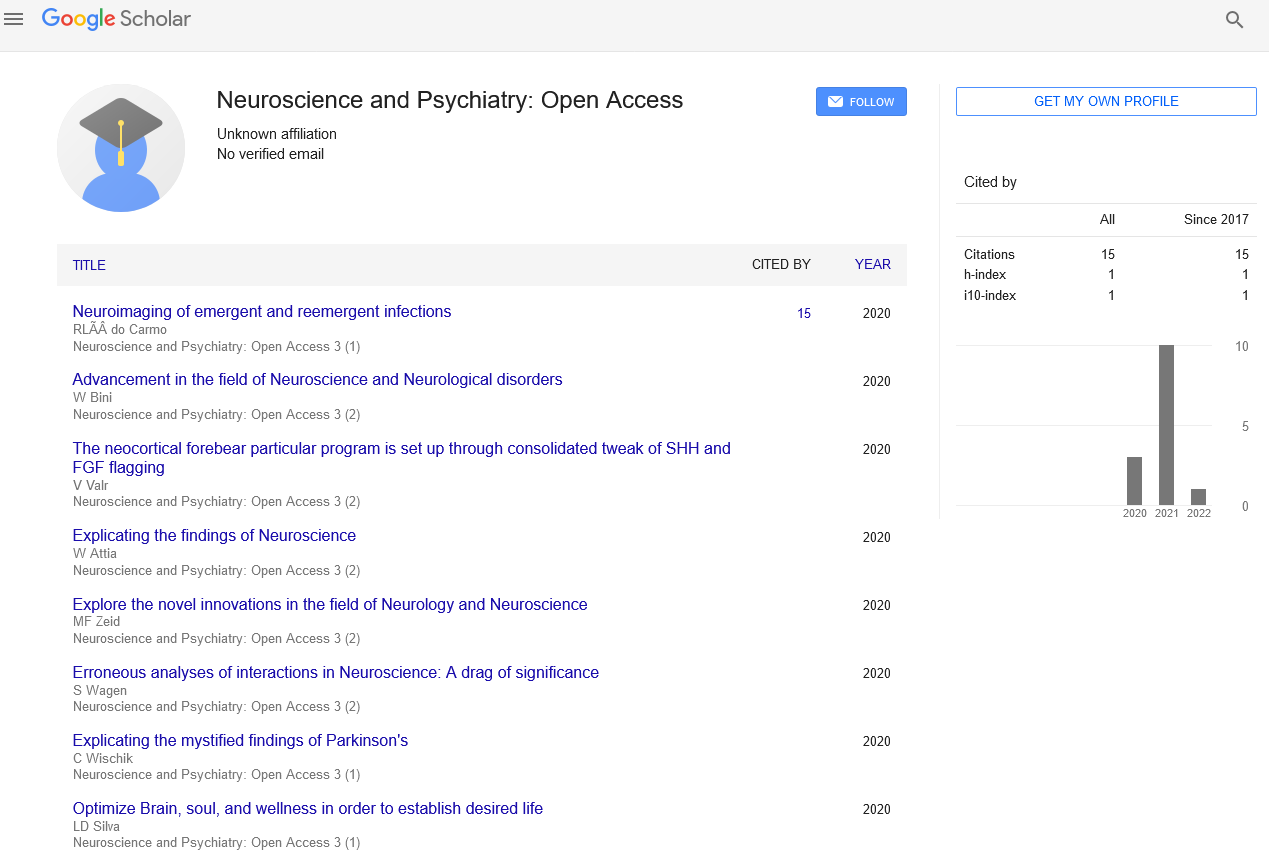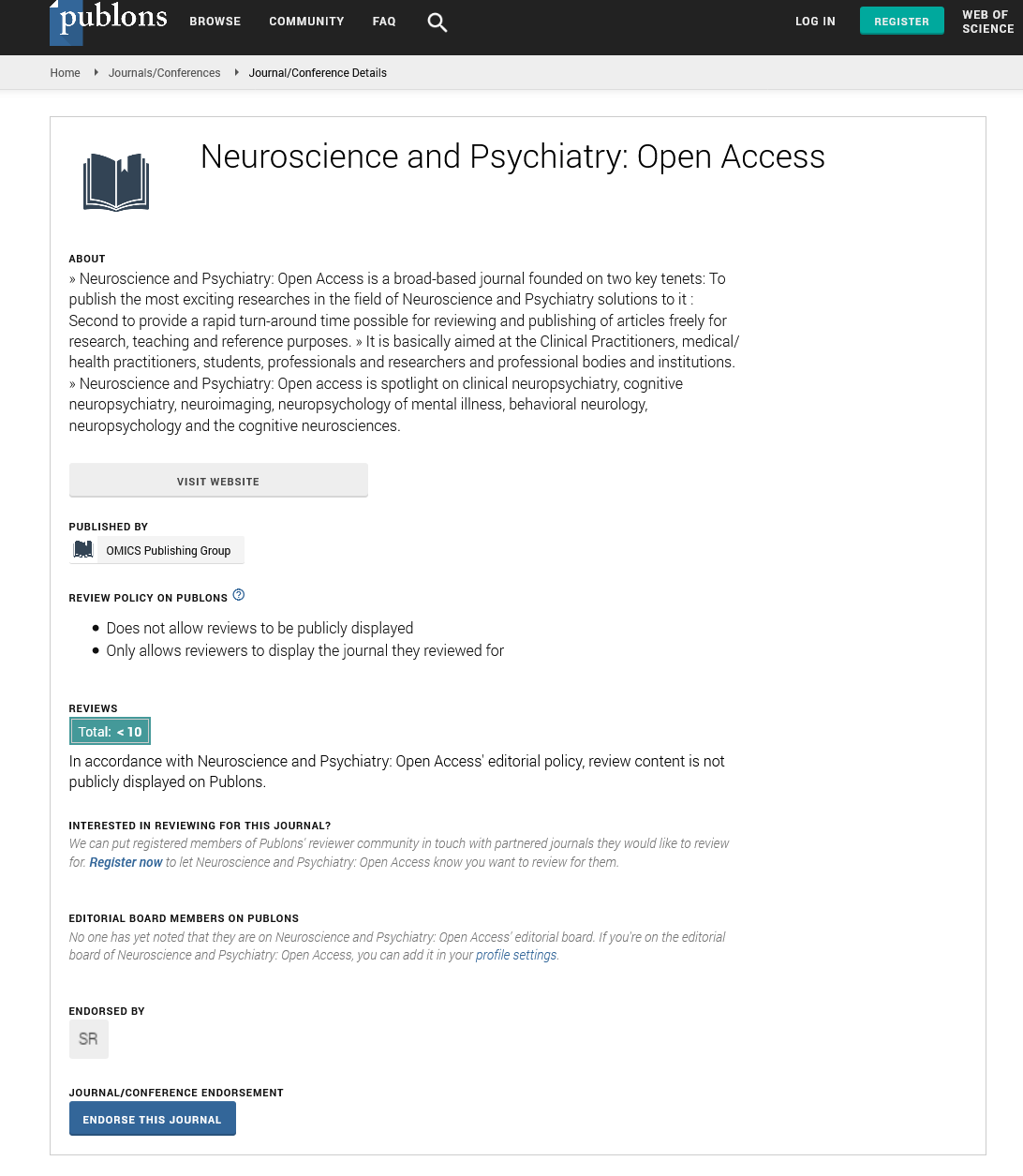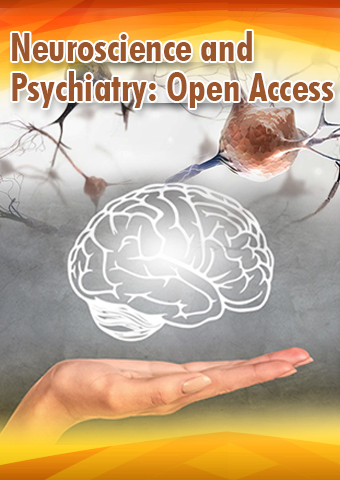Perspective - Neuroscience and Psychiatry: Open Access (2023) Volume 6, Issue 6
Navigating the Complexity of the Nervous System: Understanding Nervous Problems
- Corresponding Author:
- Matthew Yamashita
Department of Neuropsychiatry, Keio University School of Medicine, Tokyo, Japan
E-mail: yama65@ncnp.go.jp
Received: 08-11-2023, Manuscript No. NPOA-23-119634; Editor assigned: 10-11-2023, PreQC No. NPOA-23-119634 (PQ); Reviewed: 24-11-2023, QC No. NPOA-23-119634; Revised: 01-12-2023, Manuscript No. NPOA-23-119634 (R); Published: 07-12-2023, DOI: 10.47532/npoa.2023.6(6).137-138
Introduction
The nervous system, a remarkable network of cells and fibers, is the body’s intricate command center. It controls everything from simple reflexes to complex cognitive processes, making it a vital component of human physiology. However, this complexity also renders it susceptible to a range of disorders and problems. In this article, we will explore the nervous system, its functions, and the various problems that can affect it, shedding light on the conditions that impact the lives of millions worldwide.
The nervous system is divided into two main components
The Central Nervous System (CNS): The CNS consists of the brain and spinal cord. It is responsible for processing and integrating sensory information, initiating motor responses, and governing higher order cognitive functions.
The Peripheral Nervous System (PNS): The PNS encompasses all neural structures outside the CNS, including nerves, ganglia, and sensory receptors. It serves as a communication link between the body and the CNS, transmitting sensory information to the brain and conveying motor commands to muscles and glands.
Description
Common nervous system problems
The nervous system is susceptible to a wide range of problems, including injuries, diseases, and disorders. Neurological disorders encompass a broad category of conditions that affect the brain, spinal cord, and nerves. Conditions such as epilepsy, multiple sclerosis, and Parkinson’s disease are examples of neurological disorders, each with its unique set of symptoms and treatment approaches. Neurodegenerative diseases are a subset of neurological disorders characterized by the progressive degeneration of nerve cells. Alzheimer’s disease and Amyotrophic Lateral Sclerosis (ALS) are examples of such conditions, resulting in the gradual loss of cognitive function and motor control. A stroke occurs when there is a sudden disruption of blood flow to the brain, leading to brain cell damage. Strokes can have devastating effects, including paralysis, speech problems, and cognitive impairments. TBIs result from head injuries, often caused by accidents or sports-related incidents. The severity of TBIs can vary, but they can lead to a range of symptoms, from mild cognitive impairments to severe neurological deficits. Peripheral neuropathy is a condition that affects the nerves in the peripheral nervous system. It can lead to symptoms such as numbness, tingling, and muscle weakness, often associated with conditions like diabetes. Injuries to the spinal cord can result in varying degrees of paralysis and sensory loss. They can be caused by accidents, falls, or sports-related incidents.
Brain tumors can be benign or malignant and can originate in the brain or spread from other parts of the body. They can exert pressure on the brain, causing a range of neurological symptoms.
The impact of nervous system problems on individuals can be profound and wide ranging. These conditions can affect an individual’s physical, cognitive, and emotional well-being. Many nervous system problems lead to physical impairments, including muscle weakness, paralysis, coordination difficulties, and loss of sensation. These impairments can impact an individual’s mobility and independence. Conditions like Alzheimer’s disease and traumatic brain injuries can result in cognitive deficits, including memory problems, impaired reasoning, and difficulties with problem solving. These deficits can affect an individual’s ability to perform daily tasks and maintain independence. Dealing with the challenges posed by nervous system problems can be emotionally and psychologically taxing. Individuals may experience depression, anxiety, and mood disorders as they adapt to their condition and its impact on their lives. Nervous system problems can affect an individual’s ability to engage in social and interpersonal relationships. Isolation and reduced quality of life are common consequences.
Diagnosis and treatment
Diagnosing and treating nervous system problems often involve a multidisciplinary approach. Neurologists, neurosurgeons, and other medical specialists work together to assess and manage these conditions. Diagnosis typically involves a combination of medical history, physical examinations, neuroimaging, and, in some cases, laboratory tests.
Medications are frequently used to manage symptoms and slow the progression of certain nervous system problems. For example, anti-seizure drugs are prescribed for epilepsy, and levodopa is used in the treatment of Parkinson’s disease. Physical therapy, occupational therapy, and speech therapy can help individuals recover or improve their function and independence. In some cases, surgical interventions are necessary to address nervous system problems. Procedures can include tumor removal, shunt placement for hydrocephalus, and spinal cord injury repair. Lifestyle changes, such as a balanced diet, regular exercise, and stress management, can help individuals better manage certain conditions and improve their overall well-being. Individuals and their families often benefit from support groups, counseling, and other forms of emotional and psychological support to cope with the challenges posed by nervous system problems.
Conclusion
The nervous system is a marvel of complexity and precision, governing countless bodily functions and cognitive processes. Nervous system problems can have profound and far reaching effects on individuals, affecting their physical, cognitive, and emotional well-being. While the challenges posed by these conditions are significant, ongoing research and advancements in medical science offer hope for improved diagnostics, treatments, and interventions.
As our understanding of the nervous system continues to deepen, it is crucial to foster awareness, support, and research efforts aimed at enhancing the lives of individuals affected by these conditions and ultimately finding new solutions for preventing, diagnosing, and treating nervous system problems.


